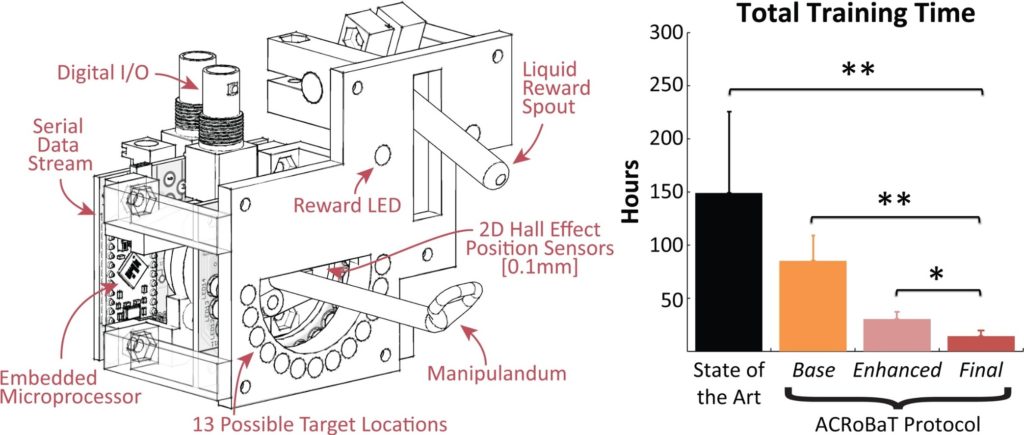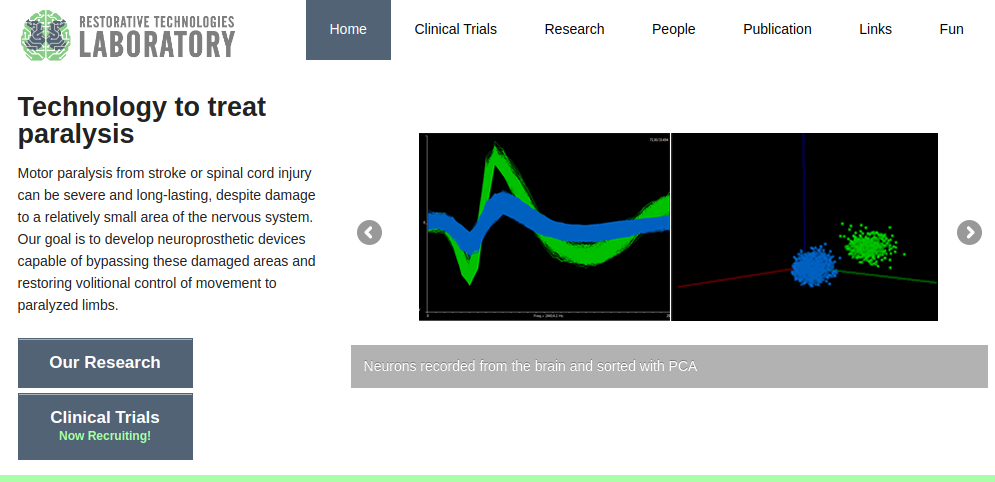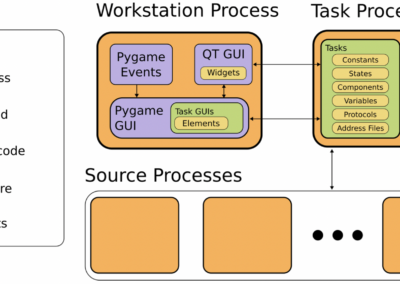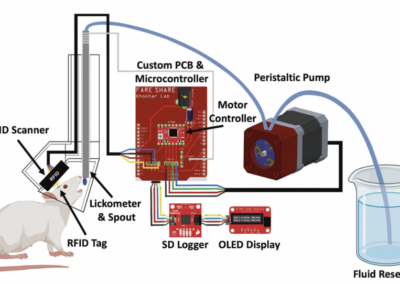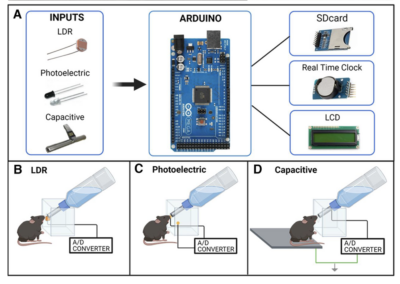ACRoBaT
David A. Bjånes and Chet T. Moritz from the University of Washington in Seattle have developed and published their device for training rats to perform a modified center out task.
As neuroscience tools for studying rodent brains have improved in the 21st century, researchers have started to utilize increasingly complex tasks to study their behavior, sometimes adapting tasks commonly used with primates. One such task used for studying motor behavior, the center-out reaching task, has been modified for use in rodents. Bjånes and Moritz have further contributed to the adaptation of this task by creating ACRoBaT, or the Automated Center-out Rodent Behavioral Trainer. This device features two custom printed PCBs, a 3D printed housing unit, an Arduino microchip, and other commercially available parts that can be mounted outside a behavioral arena. It also provides a fully automated algorithm to train rats based on behavioral feedback fed into the device through various sensors. The authors show the effectiveness of the device with data from 18 rats across different conditions to find the optimal training procedure for this task. Information for how to build the device is available in their publication, as well as on Github.
This research tool was created by your colleagues. Please acknowledge the Principal Investigator, cite the article in which the tool was described, and include an RRID in the Materials and Methods of your future publications. RRID:SCR_021546
Read the paper
Read more about the development and implementation of ACRoBaT in Behavioural Brain Research!
Restorative Technologies Lab
Learn more about research related to this project from the Morit Lab at University of Washington.
Github
Get access to the Bill of Materials, Instruction Manual and necessary files from GitHub!

